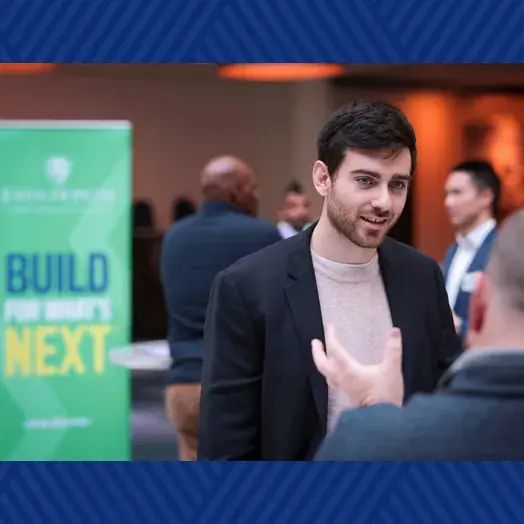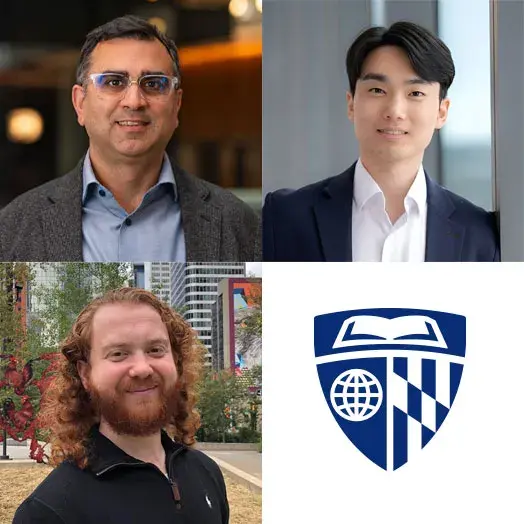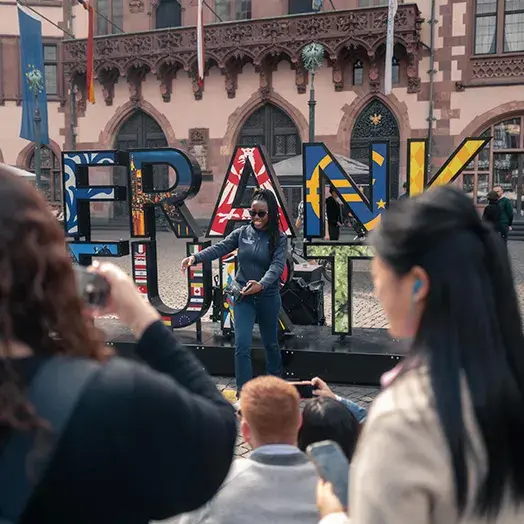While universities and businesses are focusing on diversity, equity, inclusion, and belonging, it’s important to ask who those efforts put at the center—and whether marginalized individuals truly feel like they belong.
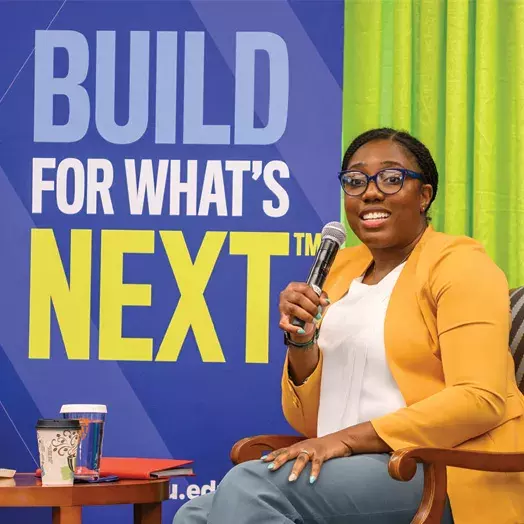
Third annual DEIB summit focuses on the meaning and metrics of belonging
What does it mean to belong?
The question was at the heart of the opening keynote at Johns Hopkins Carey Business School’s recent DEIB Summit, a three-day event focused on diversity, equity, inclusion, and belonging. In an hour-long conversation with Carey Business School Dean Alex Triantis, Indiana University School Assistant Professor of Medicine Sacha Sharp reset perspectives supported by research.
Sharp, whose PhD is in higher education and whose master’s degree is in education and human development, also serves as an adjunct assistant professor in the Africana Studies program at IUPUI. She explained that the psychological concept of belonging wasn’t measured until around 1992 when researchers found it was essential for health and wellness. In 2009, it became integrated into education science, exploring belonging in a classroom setting.
“Maybe we should allow folks who didn’t necessarily have the challenge of learning how to belong to reflect while we are very specific in acknowledging what it takes for those who have been challenged,” Sharp said. “Parents, women, Black, brown, minoritized individuals—are we centering them in the conversation? Are we asking them about their experiences? All of those things are important in order to decolonize. Also centering their histories in ways that they can now feel they belong when, for so long, they didn’t.”
Sharp was one of a dozen accomplished individuals who shared research and applied insights into topics like creating a culture of belonging, employee resource groups—known as ERGs—and affinity groups as support and change-makers, professional identity for women, and inclusive mentoring. In the summit’s third year, the thought partnership and leadership offered a concentrated and deliberate time for focus.
“The summit is an opportunity for learning and engaging with leaders, scholars, and practitioners across different industries who bring diverse perspectives,” said Roger Williams, Carey’s director of Diversity, Equity, Inclusion and Belonging Partnerships and Student Experience. “There is space for conversation, critique, and reflection on systemic issues that create barriers within our society and, ultimately, bleed into our academic and professional communities.”
Each of the summit’s seven learning and discussion sessions saw between 50 and 100 registrations for in-person attendance, and Sharp’s opening keynote drew more than 80 online registrants in addition.
This year’s summit intended to deliberately consider how to measure and improve on senses of belonging. “We chose to highlight the importance of incorporating meaningful metrics to better inform our practices and efforts that are sustainable,” said Ashley Hixson Clarke, the senior associate director for Diversity and Inclusion Programs at Carey. “’Is what we are doing working? How do we know? How and when do we shift based on context? Are we taking an intersectional approach?’ We wanted to encourage deep reflection, community, and building relationships that challenge us to be better humans overall.”
Part of that challenge came into focus when Sharp shared her definition of allyship—a moment that prompted attendees to rethink who gets to call them allies.
“Allyship is really tied to understanding some of the geohistorical, political, and critical components of someone’s existence and being able to speak up for those people when there is a need for someone to speak up,” she said. “You’re not an ally just because you do this work. You have to be identified as an ally. Someone has to thank you and be willing to work with you and tell you, ‘The work that you’re doing is really meaningful to me. I think of you as an ally.’ You need folks from those groups to affirm that the allyship is working.”
That specific understanding of allyship aligns with steps underrepresented individuals might take in their career journeys, according to Eduardo Arabu of the National Hispanic Corporate Council. During the session on ERGs and leadership, Arabu shared that, in addition to engagement, sponsorship is a significant kind of individualized allyship.
“This is where you have leaders, department heads, executives who know your work, know what you can contribute, and they’re speaking about you when you’re not in the room,” Arabu explained. “They know you can be tasked with a certain project or you’re being considered for a promotion, you’re considered for an assignment, or they’re investing in you because they see the long-term emerging [potential] that you have.”
What to Read Next
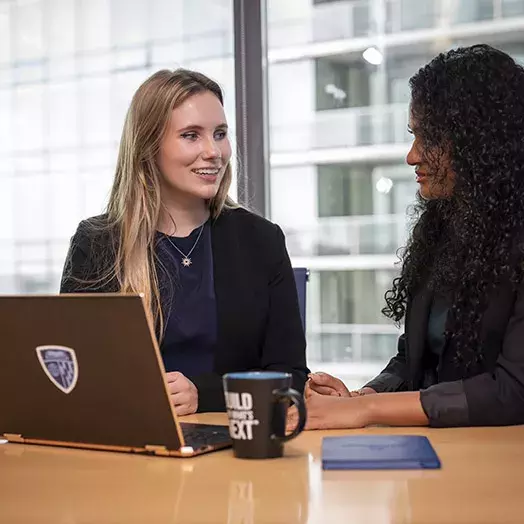
Diversity at Carey
Johns Hopkins Carey Business School is among highest percentages of female full-time MBA students in elite groupRegardless of how many countries, ethnicities, and backgrounds may be represented at any school, there is no guarantee that these individuals feel senses of inclusion and belonging. Dean Alex Triantis acknowledged that institutions of higher learning have not historically been inclusive, and Carey has a deliberate roadmap to facilitate authentic and purposeful work toward what Williams called ways to move past complicity.
“Carey has always given me the opportunity to learn from my diverse class, students, and faculty, and strive to be an inclusive leader,” said MBA candidate Trishala Khatri. “I’ve been able to make connections and polish my cultural agility.”
You can find more information on Carey’s commitment to diversity, equity, inclusion, and belonging here.
